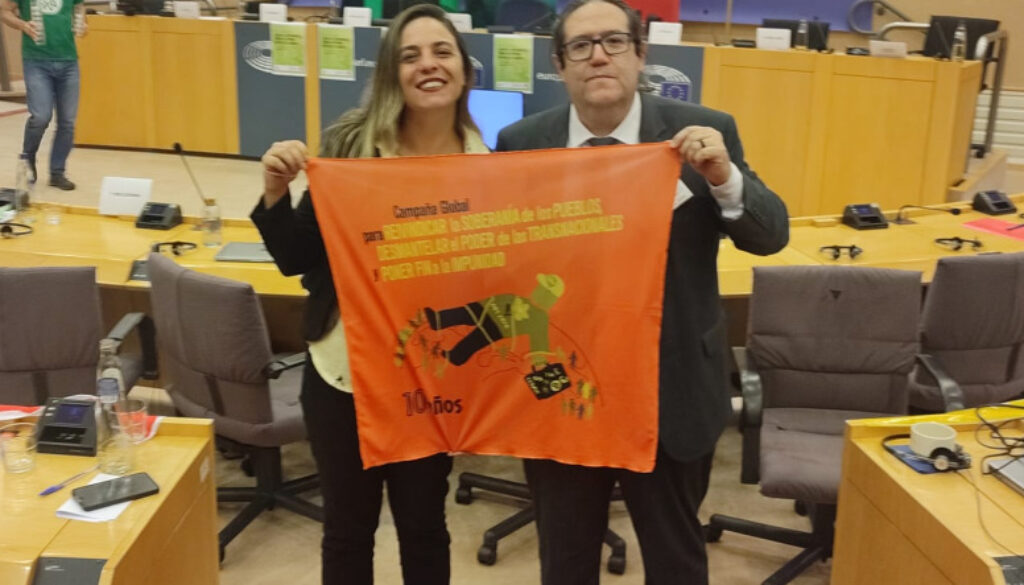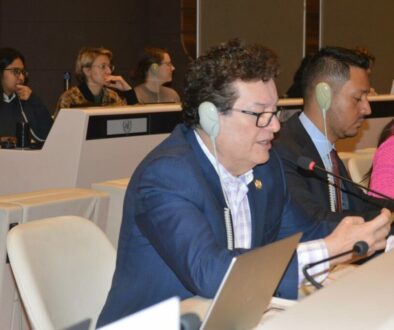A new EU-Latin America trade relationship for the 21st Century
Parallel to the European Union – Community of Latin American and Caribbean States Summit (EU-CELAC), 17-18th July, Members of the European Parliament and more than 50 civil society organizations, movements, unions and peasants co-organized a half-a-day Conference to review the effects of over two decades of free trade agreements (FTAs) between the EU and Latin America and the Caribbean, and to devise new terms for the relationship between the continents.
In the presence of over 160 activists of more than 100 organizations, the conference held 3 panels: the first, evaluating over 20 years of free trade agreements between EU and CELAC; the second, specifically unraveling the EU MERCOSUR FTA; and a third to suggest and propose new forms of engagement for the two continents.
The Global Inter-parliamentary Network was largely represented there from both sides of the Atlantic: MEPs Miguel Urbán, Manon Aubry and Helmut Scholz represented GIN in Europe; MPs Fernanda Melchionna and Tarcísio Motta were there for Latin America.
Helmut Scholz reminded us how trade is determinant to our ways of living, shaping what and how we produce and consume. To MEP Manon Aubry, such fundamental relations as proposed by the EU-MERCOSUR are simply toxic: there is no question there.
GIN MP Tarcísio Motta agreed with the toxicity of the FTA, adding that “we cannot speak of a trade agreement in which goods enjoy more freedom that people without speaking of historical reparations, with transfer or resources and of technology so that the peripheries, the favelas, the poorest communities of Latin America are able to adapt to extreme climate events”.
As concluded by Fernanda, “what we need is a Binding Treaty to guarantee the accountability of large Transnational Corporations that cause deforestation and kill people, like in Minas Gerais, in Brumadinho and Mariana; (…) there is no international instrument that can make transnational corporations liable, them and their network of impunity that puts greed above life.
Miguel Urbán concluded the Conference underlying that they had sent a very clear message to the official EU-CELAC Summit: “there are alternatives to the neocolonial extractivist neoliberal policies that define the asymmetric relationship that we currently have between the European Union and Latin America. Never again we will have trade agreements against the interests of the peoples, not in our name!”
Watch the Conference here.



